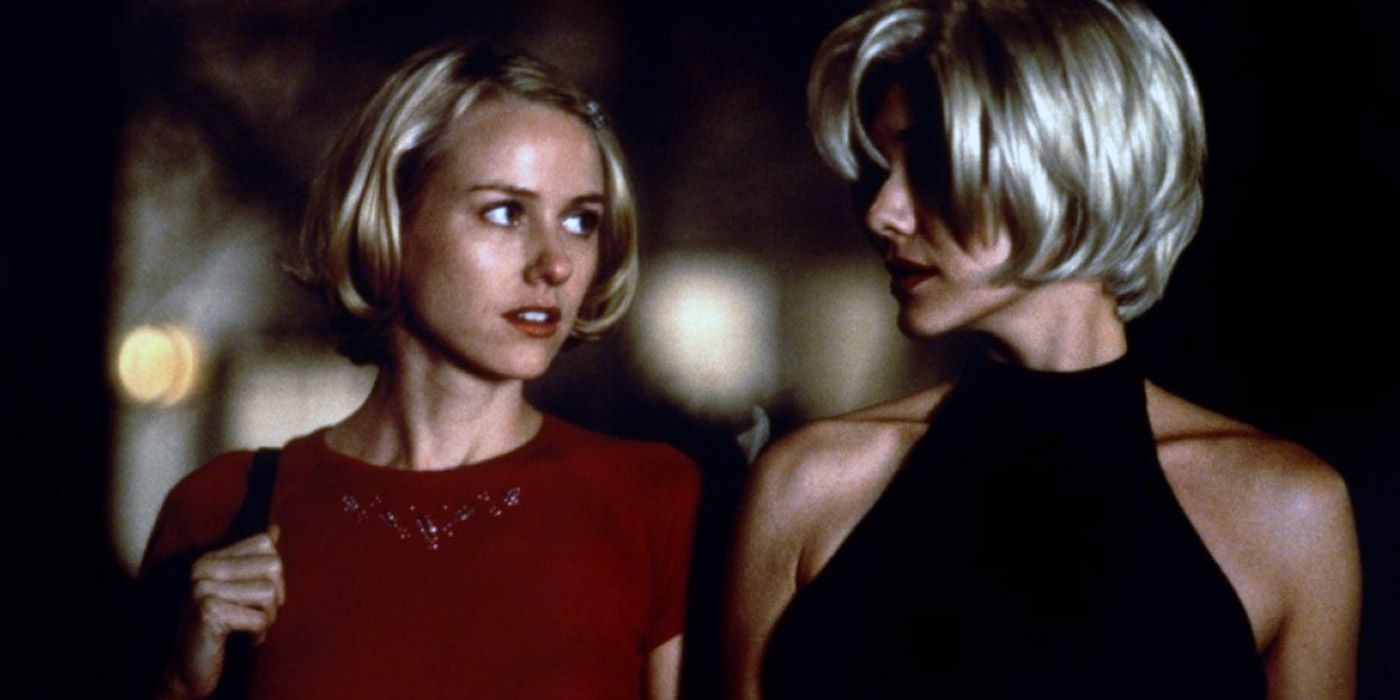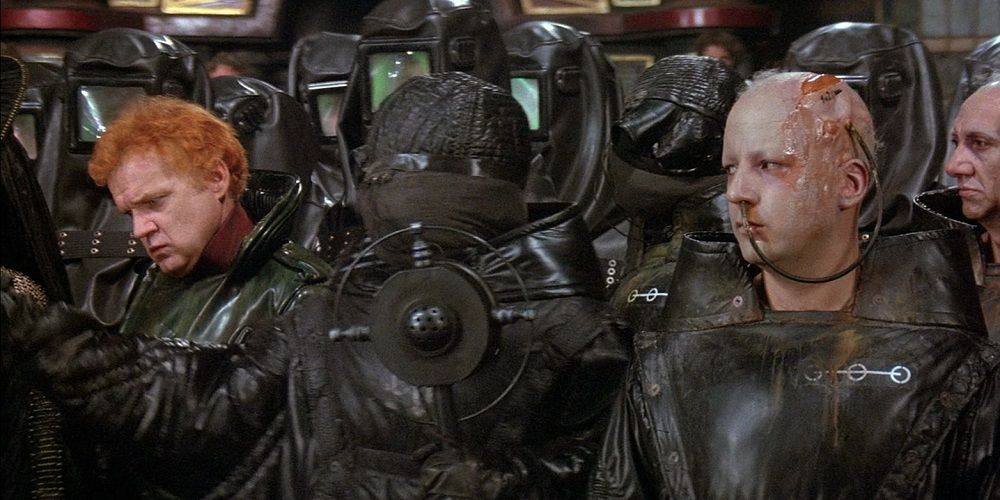Summary
- Names such as Jodie Foster, Michelle Pfeiffer and Meg Ryan were considered for the role of Princess Irulan.
- Director David Lynch had to trim his intended vision down to nearly three hours due to Universal's presure.
- The financial losses were so significant that Universal scrapped all plans for the two announced sequels and Lynch considers the film his one true cinematic failure.
David Lynch's 1984 adaptation of Frank Herbert's beloved sci-fi novel Dune is considered one of Hollywood's all-time biggest failures. The expensive FX-driven spectacle cost roughly $40 million to make and failed to earn its budget back after underachieving at the international box-office. All told, Dune earned $31 million at most while garnering middling critical reviews.
Set in the year 10191, Dune follows warring factions of noble families out to control the planet Arrakis while protecting the source of Melange, an invaluable spice mixture that provides prophetic time travel. With Denis Villeneuve's 2020 remake due in December, it's time to take a look back to David Lynch's original.

Every David Lynch Movie Ranked Worst To Best
David Lynch is a unique director whose filmography effectively captures what dreams feel like, with movies such as Eraserhead and Mulholland Drive.Ridley Scott Left Production For Blade Runner
He was hired by producer Dino De Laurentiis in 1979
Prior to David Lynch taking the job, Ridley Scott was slated to direct the big-screen adaptation of Dune. He was hired by producer Dino De Laurentiis in 1979 after securing the rights to Herbert's novel in 1976. But after spending seven months on the project with writer Randy Wurlitzer and set-designer H.R. Giger (who Scott worked with on Alien) with plans to divide the story into two feature films, Scott left Dune to make Blade Runner instead.
He cited the unexpected death of his older brother as the main reason for dropping out but also mentioned how slow and time-consuming the production of Dune would have been as well. Scott wouldn't direct the next Blade Runner but in a twist of fate, both Dune (2020) and Blade Runner 2049 are directed by Denis Villeneuve.
David Lynch Turned Down Return Of The Jedi For Dune
George Lucas approached Lynch for the job
When offered the chance to finish the Star Wars trilogy, David Lynch turned down the opportunity to direct Star Wars: Return of the Jedi in order to make Dune. George Lucas approached Lynch for the job, but Lynch told Lucas "It's your thing, it's not my thing" and encouraged the Star Wars mastermind to direct his finale. Lucas didn't, though, and only directed Star Wars himself by the time of the prequel trilogy.
At the time he accepted the Dune gig, Lynch had not read Herbert's novel, nor knew anything about the story or making science fiction cinema in general. Lynch spent six months working on two drafts with writer Eric Bergren, but the two divorced over creative differences. Lynch solely worked on an additional five drafts of the script before entering production.
Locations & Logistics Were A Nightmare
The crew suffered an illness known as Montezuma's Revenge
Dune presented a massive logistical challenge for Lynch and his crew. In order to cut costs, the film was shot in various locations throughout Mexico. Roughly 1,700 crew members were on hand for the use of 80 film sets built on 16 different sound stages.
Production was temporarily shut down when the crew suffered an illness known as Montezuma's Revenge. Additional problems on location included stifling smog, rolling blackouts, food poisoning, a single telephone line, backup generators, government bureaucracy, and cockroach infestations.
Many Famous Names Were Considered For Certain Characters
Jodie Foster, Michelle Pfeiffer, Val Kilmer and Rob Lowe were considered for roles
Helena Bonham Carter was originally cast as Princess Irulan but was forced to drop out due to her scheduling conflict on A Room with a View. Before Virginia Madsen was given the part, Jodie Foster, Michelle Pfeiffer, Meg Ryan, Jennifer Jason Leigh, Melanie Griffith, Bridget Fonda, and Sarah Jessica Parker were considered.
Additionally, Val Kilmer and Rob Lowe turned down the role of Paul Atreides (Kyle MacLachlan). Glenn Close was offered the role of Lady Jessica, while Aldo Ray was forced to bow out as Gurney Halleck due to his alcoholism.
Patrick Stewart Was Cast By Mistake
Lynch thought he was hiring a different Patrick Stewart
Speaking of Gurney Halleck, Sir Patrick Stewart was awarded the role by mistake. In the rush to replace Aldo Ray at the last minute, Lynch thought he was hiring another actor named Patrick Stewart for the role.
Stewart also did not realize that Sting was a famous musician
Stewart has since claimed that the "stillsuit" he wore for Dune was one of the most uncomfortable costumes he ever wore. Stewart also did not realize that Sting was a famous musician, asking him if he was a solo artist or if he had a band. When Sting told him he belonged to a group called The Police, Stewart thought he meant a band comprised of real lawmen.
The Guild Members' Costumes Were Made Of Old Body Bags
The costumes were not designed for the film
Dune has no shortage of memorable visuals and alien iconography. One of the more memorable costumes includes the large black body-suits worn by the Guild members. But believe it or not, those costumes were not designed for the film.
They were real-life body bags from the '20s found in an abandoned firehouse by the production team. Stranger yet, Lynch and his team did not tell the actors that the body bags had been used several times to hold actual dead people until production wrapped.
The Original Cut Is Nearly 4 Hours Long
Lynch was forced to trim his intended vision
Lynch's original rough cut of the film ran for more than four hours. Once the visual FX were added in post-production and several scenes were cut, Lynch trimmed his intended vision down to nearly three hours.
Universal wanted a traditional two-hour movie to release in theaters, prompting several more cuts, reshoots, an added voice-over narration, and a new introduction of Princess Irulan (Virginia Madsen). The comprises Lynch was forced to make resulted in the several critical misgivings and mass audience confusion that the movie received upon release.
Dune's Financial Failure Killed Its Sequels
Lynch was set to adapt the remaining novels
Once Dune became a financial failure on opening weekend, earning just $6 million against its $40 million budget, Universal scrapped all plans for the two announced sequels. Lynch was going to direct all three films, while Madsen was already signed to appear in both sequels.
Lynch was set to adapt the remaining novels in Herbert's trilogy, including Dune Messiah and Children of Dune. When the plans were nixed, Lynch went off to make Blue Velvet instead. Similarly, the new Dune is said to be a two-parter but only time will tell if Warner Bros. will commit to this.
David Lynch Really Hates Dune
Lynch considers it his one true cinematic failure
Lynch has been incredibly hard on himself since the release of Dune, considering it his one true cinematic failure. He cites the lack of final cut for the failure and was also quick to label himself a sellout for accepting the gig in the first place.
Lynch continues to rue his time on Dune so much that he refuses to publicly speak about the film. He also declined a chance to release a director's cut, claiming it would be too painful to return to. The pain and disappointment of his time on Dune are so long-lasting that Lynch has publicly stated that he has no interest in seeing Villeneuve's version.
Alejandro Jodorowsky Almost Made A 14-Hour Dune
The Chilean filmmaker set out to create one of the most ambitious movies of all time
For as infamous as its become, Lynch's adaptation still stands in the shadow of Jodorowsky's Dune. In 1974, Chilean filmmaker Alejandro Jodorowsky (The Holy Mountain, El Topo, etc.) secured the book's rights and set out to create what's become known as one of the most ambitious movies that was never made.
Alejandro sought Alien writer Dan O'bannon for the script, set-designer H.R. Giger to create the FX, acclaimed artist Moebius to design the costumes and world, and he even solicited music from Pink Floyd. He also wanted to cast Salvador Dali as the Emperor, Orson Welles as Baron Harkonnen, and Mick Jagger as Feyd-Rautha, just to name a few high-profile casting choices. When the project swelled into a 10-14 hour epic, funding dissolved and the film was scrapped. The entire debacle is explored in the 2013 documentary, Jodorowski's Dune.


